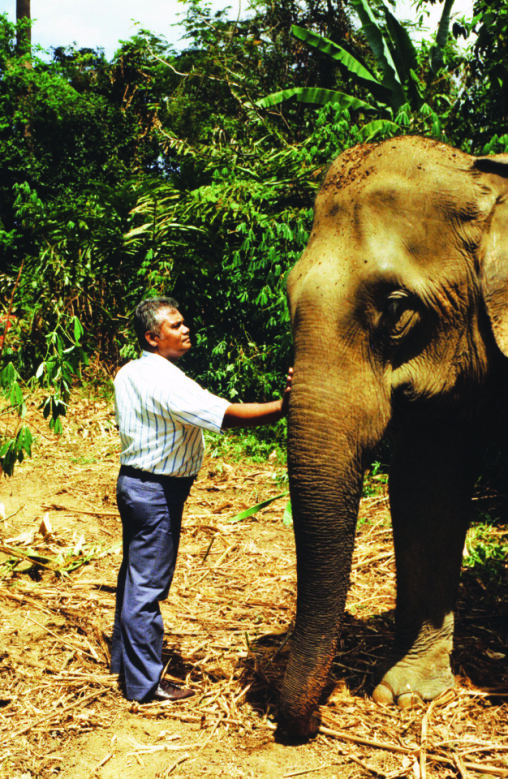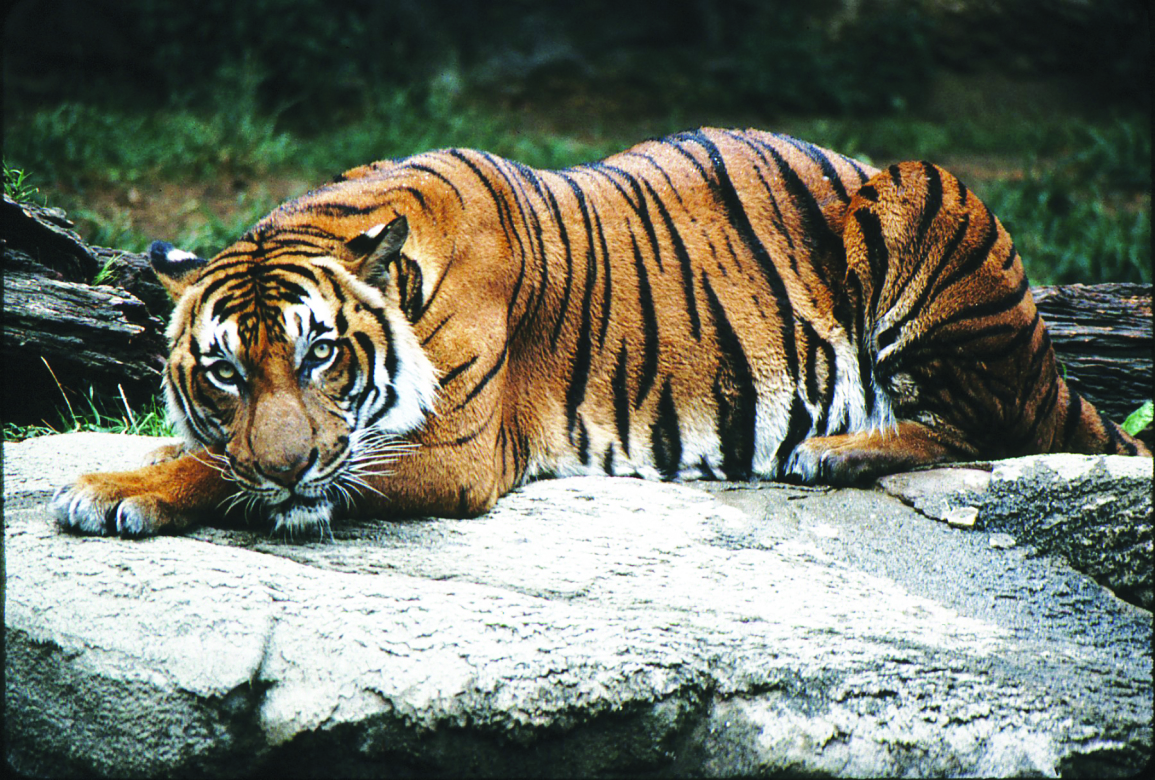
For The Love of Wildlife
Mohd Khan Momin Khan is a pioneer in wildlife research and conservation through the setting up of captive breeding centers. He played a key role in founding the Kuala Gandah National Elephant Conservation Centre in Pahang in 1978.
The centre carries out public awareness activities related to the conservation of elephants in Malaysia, and over the past 30 years, has successfully relocated more than 1,000 wild elephants as a result of Khan’s pioneering work. .
His career in wildlife conservation started when he joined the Perak Game Department (now known as The Department of Wildlife and National Parks of Peninsular Malaysia – PERHILITAN), where he initiated the capture, handling technique and relocation of wild elephants in Malaysia.
However, the technique proved unsuitable for the dense Malaysian jungles, so he and his team developed the revolutionary drug capture technique which played a pivotal role in wildlife research and conservation.

Finding a humane solution to a wild problem
As the Chief Game Warden at Perak Game Department, Khan worked closely with his game rangers and officers to solve the human-elephant conflict taking place in plantations and villages around the country.
Upon Khan pioneering the capture, handling and relocation technique inspired by the techniques used in Assam, India, at the time, two officers from the department were sent to Vietnam, Sri Lanka and Singapore (Pulau Tekong) to capture and relocate elephants.
Apart from helping contain the human-elephant conflict, Khan was also instrumental in establishing the Kuala Gandah National Elephant Conservation Centre in Pahang in 1978.
A one-of-a-kind centre in Malaysia, it is home to a herd of resident elephants and carries out public awareness activities related to the conservation of elephants in Malaysia.
Safeguarding Malaysia's endangered mammals
In 1980, Khan went on to pioneer efforts in conserving the endemic Seladang (Gaur) since the population had declined to around 200, setting up the Jenderak Seladang and Deer Captive Breeding Centre in 1982 as an initiative to protect the species’ severely declining populations. At present the breeding project by the Department of Wildlife and National Parks (DWNP) holds about 66 Seladang in captivity, with plans to reintroduce them back into the forest in their respective habitat.
Khan also conducted a four-year research on the endangered and endemic Malayan Tiger and discovered that the population had critically declined, resulting in its classification as a totally protected animal and helping the population rebound from less than 250 to 500-600 tigers.

Honouring a lifetime of conservation efforts
After retirement in December 1992, Khan worked for two-and-a-half years for the International Tropical Timber Organization (ITTO) during which a management plan was prepared for the Lanjak Entimau Wildlife Sanctuary in Sarawak Malaysia.
In honour of his long-time dedication and significant contributions to protecting wildlife and wildlife conservation efforts in Peninsular Malaysia, Khan was the sole Malaysian honored with the prestigious Sir Peter Scott Award for Conservation Merit in 2004. The Award is given out by the International Union for Conservation of Nature and Natural Resources (IUCN) which is the world’s oldest and largest global environmental organization.

Disclaimer:
The information in this award recipient's profile is accurate to the best of our knowledge as of the time the award was presented. Any subsequent changes, updates, or developments in the individual's life or achievements may not be reflected in this profile.